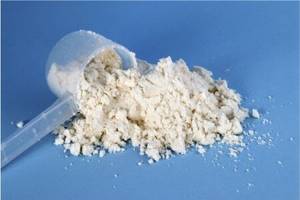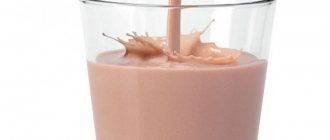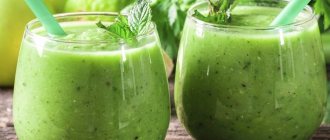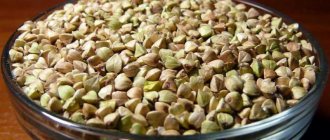Protein is an organic compound that contains various variations of 21 amino acids. Protein is part of any tissue: muscle, epithelial, cartilage, nervous and others. Protein is responsible for the following functions in the body:
» Protection. Protein is part of immunological factors. which provide protection against pathogens.
» Building material for cells and organelles.
» Energy source. One gram of protein provides 4 kcal of energy.
» Transport of nutrients and oxygen. » Cell cleansing. Proteins bind toxic substances and waste products of the body and remove them. » Metabolism. Proteins take part in all processes of anabolism and catabolism and maintain a stable state of the body
Protein shakes make up up to 50% of your daily protein requirement.
Protein shake for weight loss
Drinking protein shakes for weight loss is an excellent solution for those who want to lose weight, but are not ready to follow strict diets and somehow limit themselves in their diet. When drinking such a drink, the body receives the required amount of protein. The body spends a third more energy on digesting protein than digesting carbohydrates and fats. Protein shakes for weight loss are quite filling. You can start losing weight with cocktails right in the morning. After all, the preparation of these drinks does not require any special equipment or ingredients. And many recipes will help you make each serving of cocktail in a completely new way.
Is protein shake powder healthy?
The main problem with this supplement is that it is not tested as a medical drug. And it can negatively affect health, even if done efficiently. Since 2010, US scientist Wayne Campbell decided to test several samples of purchased protein. In 2015, a similar study was conducted by a group from Brazil. The results are mixed:
- in some samples the amount of protein is less than stated on the package;
- traces of mercury, lead, and arsenic were found (which is unacceptable for food products);
- anabolic steroids and steroids were found in other samples;
- the cholesterol or sodium content is several times higher than stated.
It is still unclear how protein shakes affect the body in the long term. Also, manufacturers do not warn that their supplements may be harmful. In pursuit of a healthy lifestyle or muscle building, a person will not first go to the doctor to get tested.
A resonant case is connected with this. Australian bodybuilder Meaghan Hefford died in 2021. She prepared diligently for the competition, introducing more protein into her diet (including in the form of protein shakes).
The cause of death was a urea cycle disorder. This is a genetic disease (and not rare - 1 case in 8500), in which the body cannot break down protein. The case drew public attention to the uncontrolled consumption of protein and supplements in the sports environment.
There are also bona fide manufacturers on the market whose products correspond to what is stated on the packaging. This protein powder is no worse than natural protein and only simplifies the athlete’s nutrition. But you should only trust trusted brands. Be prepared to pay a significant amount of money for a jar of high-quality protein.
The effect of a protein shake for weight loss
A protein shake for weight loss is useful to include in your diet to tame your appetite.
After all, the human body digests proteins much longer than carbohydrates. One glass of this drink does not provide many calories, but it perfectly dulls the feeling of hunger. With dietary nutrition in the human body, the number of fat cells and muscle mass of the body decreases. With increased protein consumption, the body triggers a so-called anti-catabolic reaction, in which, in parallel with fat loss, muscle mass is replenished. And in the absence of fats and carbohydrates, the digestive tract spends 30% more energy on digesting proteins.
Benefits and risks of taking
Protein, like fiber, can provoke excess weight loss by saturating the body, dulling the feeling of hunger and a long feeling of fullness. In addition, protein, unlike fats and carbohydrates, is a building material for muscle tissue, so by consuming enough protein and regular physical activity, you can achieve excellent body shape.
The best protein shakes for weight loss contain calcium-rich dairy products (cottage cheese, yogurt, etc.), which prevents bone loss, promotes healthy bone growth and prevents the development of osteoporosis.
However, all the laudatory reviews about this kind of nutrition concern only moderate consumption of protein shakes. If you drink too many of these drinks, then there is a risk of developing very serious diseases, which will not be easy to cure. Despite the calcium content in protein shakes, if you overuse them, the risk of developing osteoporosis increases, since calcium begins to be washed out of the body with a high-protein diet. The risk of developing cardiovascular diseases, diverticulitis, cancer, constipation, kidney and liver diseases increases.
Among the less terrible consequences is weight gain if you consume protein shakes in large quantities for a long time. This is explained by the fact that muscle mass begins to grow, and if you ignore sports, your body volume will become awkward and heavy in appearance.
With excessive consumption of protein shakes for weight loss, a deficiency of nutrients occurs in the body, which can only be supplied with ordinary food. Thus, many organs are deprived of necessary minerals and nutrition, become more vulnerable, and often begin to worry.
In connection with the above, it is worth paying special attention to the composition of the products you consume, especially if you purchase protein shakes for weight loss in pharmacies or sports nutrition stores. These shakes contain more chemicals and artificial ingredients - sugar, cholesterol, salt and fats - compared to homemade protein shakes. Even well-fortified ready-made options cannot replace a nutritious diet, so you should try to choose protein shakes that are low in fat and sugar and high in fiber and protein.
When and how to drink a protein shake for weight loss
It is advisable to drink a protein shake for weight loss in the morning instead of breakfast, with fruit or a piece of bread. This way, the body will receive the required amount of protein and replenish the number of calories lost overnight.
With regular consumption of this drink, the body spends more energy than it received. A small piece of bread contains the required amount of carbohydrates. Carbohydrates help the nutrients in the drink be better absorbed into the body. It is better to use whole grain bread, because it contains a lot of fiber and dietary fiber.
From the fruit in the drink, the body will receive all the necessary minerals and vitamins. Fruits contain sugar and fructose. They will provide the body with additional energy and will not turn into fat cells.
You can also add crushed walnut grains to a protein shake for weight loss. Nuts will help regulate the concentration of cholesterol in the blood. They provide our body with healthy fats and also actively nourish all brain cells.
It is advisable to drink the protein drink immediately after preparation. But if there is a lot of cocktail, then the remainder can be placed in a glass container, closed tightly with a lid and put in the refrigerator.
Properties of protein shakes in the fight against excess weight
It is not for nothing that protein shakes are recommended by supporters of proper nutrition for use by men and women who want to get rid of extra pounds. Due to their special composition, in which highly digestible protein predominates, they have the following effects on the body:
- Gives a long-lasting feeling of fullness with a small amount of calories. Protein, especially made from dairy products, has a long period of absorption by the body and does not contribute to a sharp rise and fall in blood sugar, therefore it dulls the feeling of hunger for a long time. Thanks to this, the need to eat high-calorie meals or constantly snack simply disappears.
- They accelerate the metabolism in the body, as protein controls the metabolic process. This is useful for the functioning of all organs and tissues, the absorption of nutrients from consumed foods and the cocktail in particular, and most importantly, weight loss. That is, protein shakes directly contribute to faster loss of extra pounds, provided proper nutrition and moderate physical activity.
- They have a beneficial effect on the condition of the muscular and skeletal systems. Dietary restriction usually results in the body not receiving enough protein and calcium, which are important elements for the body to function. A protein shake rich in these substances helps maintain muscle tone and bone strength. Thus, the risk of developing osteoporosis is reduced, the body looks toned even with a calorie deficit, and the muscles and the heart become stronger.
- Keeps skin tight and healthy. Weight loss, especially rapid and significant, often leads to loss of skin tone, sagging on the face, arms, abdomen, and loss of elasticity of the epidermis. Consuming the required amount of protein, which is rich in cocktails, prevents such consequences, maintaining firmness and radiance of the skin.
It is believed that 300 ml of a protein shake replaces a full meal.

Despite the positive benefits of protein shakes for weight loss, taking them in excess can be harmful: leading to liver overload, constipation, and even weight gain.
Composition and types of protein shakes for weight loss
When losing weight, it is very important to know how many calories are in a shake. These drinks have low calorie content (no more than 200 kcal per 250 g serving). But they contain a sufficient amount of nutrients. One glass of protein drink can contain as much iron and protein as a beef steak. At the same time, the calorie content of the protein shake will be minimal.
Any protein shake for weight loss includes water-soluble proteins obtained from egg whites, whey or plant products (for example, soy).
Athletes drink specialized protein drinks. They contain mineral supplements and multivitamin complexes. When drinking such cocktails, the loss of salts that come out with sweat is compensated.
Considering how many calories are in a cocktail, carbohydrates (fructose or sucrose) or fats are sometimes added to the drink to increase the calorie content. Such drinks are called energy drinks.
Whey protein shake for weight loss is 100% absorbed by the body and very rarely causes allergies. Whey protein will help restore strength after a workout. Milkshake tastes better, however, some people cannot tolerate milk sugar. Egg drink is well digestible and has high biological value. However, such a cocktail is considered allergenic.
The vegetable cocktail does not contain many valuable amino acids. This drink is less popular due to the fact that the human body absorbs protein of plant origin less well. Plant-based protein shakes are mainly consumed by vegetarians.
Manufacturers add components to cocktails that reduce appetite (chromium picolinate) and accelerate the consumption of adipose tissue (L-carnitine). The most popular cocktails are Turboslim, Doctor Slim, and Cambridge nutrition. One hundred grams of such cocktails contain no more than 50 kcal (5-6 grams of complex carbohydrates and proteins and no more than one gram of healthy fats).
The Doctor Slim protein shake for weight loss has a good ratio of carbohydrates and proteins (approximately 1:1). Thanks to this combination, protein is absorbed better and hunger is satisfied faster. In addition, this drink is rich in calcium. You can choose strawberry, chocolate or vanilla flavor.
The Turboslim cocktail contains a lot of healthy fiber, as well as chromium picolinate, which suppresses cravings for sweets.
Recipe: Protein shake with milk. Calorie, chemical composition and nutritional value.
Nutritional value and chemical composition of “Protein shake with milk”.
The table shows the nutritional content (calories, proteins, fats, carbohydrates, vitamins and minerals) per 100 grams of edible portion.
| Nutrient | Quantity | Norm** | % of the norm in 100 g | % of the norm in 100 kcal | 100% normal |
| Calorie content | 100.9 kcal | 1684 kcal | 6% | 5.9% | 1669 g |
| Squirrels | 10.4 g | 76 g | 13.7% | 13.6% | 731 g |
| Fats | 3.7 g | 56 g | 6.6% | 6.5% | 1514 g |
| Carbohydrates | 6.6 g | 219 g | 3% | 3% | 3318 g |
| Organic acids | 0.1 g | ~ | |||
| Water | 78.3 g | 2273 g | 3.4% | 3.4% | 2903 g |
| Ash | 0.6222 g | ~ | |||
| Vitamins | |||||
| Vitamin A, RE | 29.3 mcg | 900 mcg | 3.3% | 3.3% | 3072 g |
| Retinol | 0.027 mg | ~ | |||
| beta carotene | 0.018 mg | 5 mg | 0.4% | 0.4% | 27778 g |
| Vitamin B1, thiamine | 0.036 mg | 1.5 mg | 2.4% | 2.4% | 4167 g |
| Vitamin B2, riboflavin | 0.133 mg | 1.8 mg | 7.4% | 7.3% | 1353 g |
| Vitamin B4, choline | 20.98 mg | 500 mg | 4.2% | 4.2% | 2383 g |
| Vitamin B5, pantothenic | 0.338 mg | 5 mg | 6.8% | 6.7% | 1479 g |
| Vitamin B6, pyridoxine | 0.044 mg | 2 mg | 2.2% | 2.2% | 4545 g |
| Vitamin B9, folates | 4.444 mcg | 400 mcg | 1.1% | 1.1% | 9001 g |
| Vitamin B12, cobalamin | 0.356 mcg | 3 mcg | 11.9% | 11.8% | 843 g |
| Vitamin C, ascorbic acid | 1.16 mg | 90 mg | 1.3% | 1.3% | 7759 g |
| Vitamin D, calciferol | 0.044 mcg | 10 mcg | 0.4% | 0.4% | 22727 g |
| Vitamin E, alpha tocopherol, TE | 0.089 mg | 15 mg | 0.6% | 0.6% | 16854 g |
| Vitamin H, biotin | 2.844 mcg | 50 mcg | 5.7% | 5.6% | 1758 g |
| Vitamin RR, NE | 0.7111 mg | 20 mg | 3.6% | 3.6% | 2813 g |
| Niacin | 0.089 mg | ~ | |||
| Macronutrients | |||||
| Potassium, K | 129.78 mg | 2500 mg | 5.2% | 5.2% | 1926 |
| Calcium, Ca | 106.67 mg | 1000 mg | 10.7% | 10.6% | 937 g |
| Magnesium, Mg | 12.44 mg | 400 mg | 3.1% | 3.1% | 3215 g |
| Sodium, Na | 44.44 mg | 1300 mg | 3.4% | 3.4% | 2925 g |
| Sera, S | 25.78 mg | 1000 mg | 2.6% | 2.6% | 3879 g |
| Phosphorus, P | 80 mg | 800 mg | 10% | 9.9% | 1000 g |
| Chlorine, Cl | 97.78 mg | 2300 mg | 4.3% | 4.3% | 2352 g |
| Microelements | |||||
| Aluminium, Al | 44.4 mcg | ~ | |||
| Iron, Fe | 0.089 mg | 18 mg | 0.5% | 0.5% | 20225 g |
| Yod, I | 8 mcg | 150 mcg | 5.3% | 5.3% | 1875 |
| Cobalt, Co | 0.711 mcg | 10 mcg | 7.1% | 7% | 1406 g |
| Manganese, Mn | 0.0053 mg | 2 mg | 0.3% | 0.3% | 37736 g |
| Copper, Cu | 10.67 mcg | 1000 mcg | 1.1% | 1.1% | 9372 g |
| Molybdenum, Mo | 4.444 mcg | 70 mcg | 6.3% | 6.2% | 1575 g |
| Tin, Sn | 11.56 mcg | ~ | |||
| Selenium, Se | 1.778 mcg | 55 mcg | 3.2% | 3.2% | 3093 g |
| Strontium, Sr | 15.11 mcg | ~ | |||
| Fluorine, F | 17.78 mcg | 4000 mcg | 0.4% | 0.4% | 22497 g |
| Chromium, Cr | 1.78 mcg | 50 mcg | 3.6% | 3.6% | 2809 g |
| Zinc, Zn | 0.3556 mg | 12 mg | 3% | 3% | 3375 g |
| Digestible carbohydrates | |||||
| Mono- and disaccharides (sugars) | 4.2 g | max 100 g | |||
| Sterols (sterols) | |||||
| Cholesterol | 8.89 mg | max 300 mg | |||
| Saturated fatty acids | |||||
| Saturated fatty acids | 2 g | max 18.7 g |
The energy value of a protein shake with milk is 100.9 kcal.
Primary Source: Created in the application by the user. Read more.
** This table shows the average levels of vitamins and minerals for an adult. If you want to know the norms taking into account your gender, age and other factors, then use the “My Healthy Diet” application.
Harm from protein shakes for weight loss
Protein shakes should not be consumed in large quantities. Nutritionists recommend drinking no more than a glass of the drink daily.
When protein is consumed in large quantities, calcium gradually accumulates in the kidneys, and this can lead to various kidney diseases and the formation of stones.
If you are allergic to lactose, a protein shake for weight loss may cause bloating, cramping, and indigestion.
With frequent consumption of protein drinks, the process of utilization in the body becomes difficult, and the liver is greatly overloaded.
What is a protein shake
A protein shake is a drink whose main component is a protein extract from animal or plant raw materials or proteins. It is prepared from store-bought mixtures or from natural food. Often additional components are added to it.
The main thing the drink provides is providing muscles with nutritional components, recovery after a workout, and also accelerating the process of losing weight or, conversely, gaining weight. For men, it most often becomes a way to build muscle. Why should girls drink it? It helps ladies lose weight and gain a beautiful figure.
protein shakes | What do they do and when should I take them?
Site Navigation - Use tab or left/right arrows to navigate, use down arrows to open submenus if available, press escape key to return to top level.
Back
- Nutrition
- Bestsellers
- Ligaments
- New items
- Samples
- Not familiar with supplements?
- Nutrition Home
- Most Popular Best Sellers
- Ligaments
- New items
- Samples
- New to supplements?
- Protein Powder Home
- Food and Snacks Home Page
- Vitamins and minerals for the home
- Amino Acids Homemade
- Creatine for home
- Weight management at home
- Carbohydrates for home
- Home accessories
- Vitamins Home
- Bars and Snacks Home
- Clothing and home accessories
- Women's clothing Home
- Collections Home
0 Form
- Accessories Home
.
Why do you need a protein shake?
It replenishes protein deficiency in the body, which is necessary for muscle growth. The drink also promotes rapid recovery after activity. Depending on your goals, it helps in both weight loss and weight gain, but the specifics of selection and use are slightly different:
- For gaining muscle mass. Protein ensures faster muscle growth, as it is the main building material for muscle fibers. To gain weight, you need to give the body more energy, so cocktails are prepared using milk or yogurt and sugar. This ensures saturation with essential amino acids and gives the muscles additional strength.
- For weight loss. Those losing weight are advised to consume enough protein, since this component requires a lot of energy to digest. It also helps not to lose muscle mass, but to specifically lose fat and speeds up metabolic processes. For those who are losing weight, you can replace one meal with a protein shake, for example, use it instead of dinner.
The benefits and harms of protein shakes
The effect on the body depends on personal characteristics, level of activity and physical fitness. A fresh, high-quality drink has the following beneficial properties:
- Restoring the body after intense exercise and saturating it with energy.
- Accelerating metabolism and losing weight due to this.
- Formation of strong muscle mass if a person is actively involved in sports.
- Preventing the destruction of muscle fibers.
- Smooth weight loss thanks to low fat and carbohydrate content.
A protein shake can be harmful if low-quality ingredients are used to prepare it, or if it is taken incorrectly. The consequences of this may be as follows:
- Digestive system dysfunction: constipation, nausea, sometimes vomiting.
- Pain in the kidneys due to clogged glomeruli.
- Inflammatory processes of the urinary system.
- Exacerbation of urolithiasis, stomach ulcers, fatty hepatosis.
- Allergic reactions.
Recommendations for use
Protein shakes are beneficial, but only if consumed correctly. You need to find out how and when it is best to drink a protein shake, and in what quantities to do it. The rules for taking such drinks are as follows:
- It is important to know when to drink the drink based on your training regime. You can do this before and after physical activity. The best option is to take the composition half an hour before or right before exercise. This will give the muscles more building material, ensuring growth. You can also drink a drink (preferably with added casein) after exercise. This will help restore energy and normalize glycogen levels in the liver.
- The optimal frequency of taking the cocktail is 2-4 times a day. You can use it before or after training, as well as at night - the protein will be well absorbed at this time. Research has shown that more frequent use is not advisable.
- The amount of drink consumed depends on the purpose of intake. So, to gain muscle mass, you can consume 20-25 grams of protein in the morning after waking up, then 30-35 grams throughout the day between meals. This will help speed up your metabolism and improve conditions for muscle growth. Further, 30 g of quickly digestible protein is recommended after training to stop catabolism and start recovery processes. The last dose (up to 50 g of slow protein) can be before bed - this will protect the muscles from catabolism throughout the night. If you want to lose weight, the scheme will be different. In the morning, you can consume 20-25 g of protein. You can add a small amount of carbohydrates to the smoothie and replace it with breakfast. After training, 30 g of fast-absorbing protein is recommended - this will restore strength and allow you to recover. Then you can replace dinner with a cocktail or drink it at night.
- How to replace a cocktail at home? Homemade recipes can replace store-bought protein shakes. To prepare them, protein-rich foods are used - eggs, cottage cheese, dairy drinks. You can add other components to them: fruits, berries, oatmeal, and so on.
- Many people are interested in whether it is possible to replace regular food with a protein shake. This can be done once a day - protein can be consumed instead of breakfast or dinner. But it cannot completely replace a nutritious diet. This is fraught with harm to the body, which will not receive enough of the substances it needs.
- Another question is whether it makes sense to drink this glorious drink for those who do not play sports. You can use them, but in this case you should not expect muscle growth - it is only possible with loads. The drink can be useful if you do not get a large amount of protein with your usual diet. Is it possible to lose weight on protein shakes if you don't exercise? It is possible if you replace them, for example, with dinner. But the main thing for losing weight is a calorie deficit, so the daily calorie intake must be taken into account in any case. Take into account how many calories the shake contains. Its average calorie content is 77 kcal per 100 grams. You can also periodically have a fasting day with protein shakes.
How to choose the right protein for a shake: general tips
In order for protein to help you achieve your desired goals and not become a waste of money, you need to choose it correctly. First, let's tell you what types of protein there are, and what their features are:
- Whey Protein. This protein mixture is divided into two types: isolate and concentrate. Isolate contains a maximum of protein and a minimum of fats and carbohydrates, so it is useful for weight loss and cutting. The concentrate contains more carbohydrates and fats, and is recommended for those who want to gain weight. Whey protein is considered the highest quality and most easily digestible.
- Egg white. The egg contains all the amino acids necessary for the body, and its protein itself has a very high biological value. It is not absorbed as quickly as whey, but it is great for regular use throughout the day. Most often it can be found not as a separate product, but as a component of universal multicomponent powders.
- Casein. Milk protein, which is called “night protein” because the body takes a long time to absorb it. Recommended for use before bedtime - this way the body will receive the necessary substances throughout sleep.
- Soy protein. The cheapest option, but it is also considered a good choice. Especially suitable for vegetarians and those who have individual protein intolerance. Quite often included in multicomponent mixtures.
- Collagen protein. It has a specially selected composition of amino acids aimed at restoring ligaments, joints and connective tissues. Sold both separately and as part of mixtures. As is already clear, it is recommended for use by those who have problems with ligaments and joints.
When choosing a protein, you need to look at what the product consists of. It should be based on natural raw materials, and not chemical analogues. The label must indicate high protein content (25 grams per serving) and low content of other substances (up to 5 grams). Consider the manufacturer - choose products from trusted brands with a good reputation.
How much should you use and how to do it correctly
To answer the question “how many servings of protein do you need?” You must first decide what exactly the goal is being pursued; there can be two of them:
- Building muscle mass. In this case, you need to correctly calculate how much protein the body needs per day. Thin men need approximately 300-350 grams; for obese men, the portion of protein is calculated according to the formula - for every kilogram of weight there should be four grams of protein. For women with average and low weight, this norm is about fifty grams less, and for those prone to obesity it should not exceed 250 grams. The regimen for taking sports nutrition to effectively increase muscle mass is as follows:
- in the morning, a portion of fast proteins on an empty stomach, this will prevent the destruction and breakdown of muscle tissue;
during the course it is necessary to maintain a high content of amino acids in the muscles with a slow or complex type of mixture;
- thirty minutes before the start and after the same interval of time after training, take one serving of fast proteins, immediately before bedtime, repeat the slow or complex version.
- To lose weight, it is recommended to take proteins in a volume of 130-160 grams for men and 100-140 for women. If the goal is to increase muscle definition, then you need to take a little more protein: men of normal build 200-260 grams, women 180-220.
At the same time, many experts recommend taking amino acid or vitamin complexes, creatine, and glutamine.

Methods of eating to lose weight or gain relief are practically no different from gaining muscle mass. But, first of all, it is necessary to select a protein with a minimum content of carbohydrates and fat; the ideal option would be isolate (“ISO”). At the same time, various fat burners can be taken, for example, Chitosan; how many of them are needed must be determined by a specialist.
The most important thing for the body when using sports nutrition is to never completely replace proteins with proteins. They should come in a fifty percent proportion and no more.











